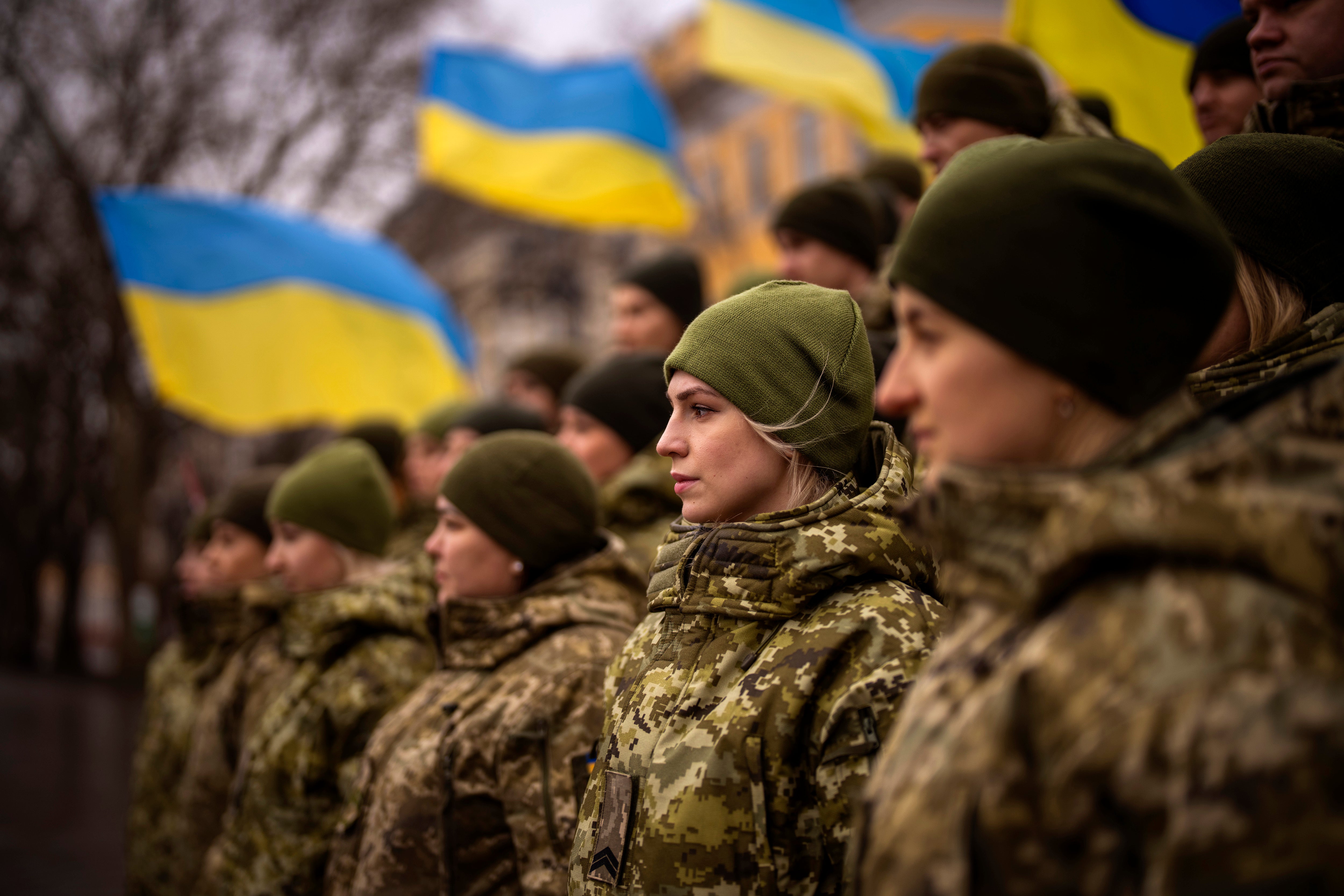Putin is gaslighting us all — and it looks like we’re going to have to accept it
Both Russia and the US have engaged in psychological warfare even as troops fail to advance into Ukraine as expected


Here we are again, entangled in a geopolitical standoff of “will he, won’t he?”
For months, the threat of an “imminent” Russian invasion has hovered over Ukraine. Throughout this time, Russian President Vladimir Putin has demonstrated the strategy he’s most skilled at: gaslighting the world. And now, it appears America is trying to beat the disinformation-dependent despot at his own psychological game.
If you’ve been following developments in recent months, you might need a neck brace because the whiplash has been unrelenting. But for those familiar with Soviet-era disinformation tactics and Russia’s recent interference in western democracies, it’s clear that the psychological aspect of sowing such confusion is just as important to Putin as the threat of physical invasion.
Russia deployed 150,000 troops to the Ukrainian border while claiming it was the one being provoked. Putin said that he’d begun withdrawing some troops from the Ukrainian border, but the US and Ukrainian President Volodymyr Zelensky say they’ve seen no signs of a withdrawal on the ground. NATO Secretary General Jens Stoltenberg has gone as far as to say it appears Russia is continuing its troop buildup. Meanwhile, Putin says he doesn’t want war but calls the situation in Donbas a “genocide,” which some argue could be a pretext for an attack.
While this disorienting back-and-forth creates uncertainty, Putin’s key motivations are well known. He wants to return Russia to its former Soviet glory and retaking Ukraine is a big piece of that puzzle. He’s also supremely paranoid about the west’s expansion of NATO over the past 20 years. In pursuit of these aims, Russia has sought to divide western alliances through cyber and disinformation warfare and chaos. And in recent months, it seems Putin has analyzed the situation in the US, UK, Germany, and other western countries and come to believe he has an opening that didn’t exist before.
NATO was recovering from four years of a nationalist administration under Donald Trump. The US has been busy battling internal political divisions and, after the withdrawal from Afghanistan, a country sick and tired of interventionist strategies. Putin also has an asset he didn’t have a decade ago: an increasingly Russia-friendly Republican Party and extremely pro-Russia views in right-wing American media. Elsewhere, the UK is embroiled in a political crisis of its own, with Prime Minister Boris Johnson facing an existential scandal. Germany has new leadership. All of this while the Covid pandemic rages on. It’s fair to say that the predominant western democracies found themselves, recently, in a moment of crisis — a moment of weakness.
So, Russia deployed over 150,000 troops, according to US estimates, to the Ukrainian border. Putin laid out his demands, which included a commitment from NATO that they would not allow Ukraine to join. Yet, Putin’s exact intentions remain unclear. Is this just a game of brinkmanship designed to force western hands? Does Russia truly plan on invading? No one really knows — but it does seem to be the case that Putin didn’t expect a united NATO response and for President Zelensky not to flinch.
Despite a few early upsets, NATO has stood strong against this threat. They’ve refused major concessions on NATO expansion and warned of coordinated devastating economic sanctions in the case of an incursion. Then came the mind games.
The US is engaging in information warfare as a way to deter Russia and preempt its disinformation. The Biden administration has taken a savvy approach with rapid-fire leaks of what US intelligence is discovering about Putin’s imminent moves. Russia was reportedly caught off guard by this strategy.
Few journalists have a better understanding of US-Russia relations than Russia expert Julia Ioffe, who believes the likelihood of an invasion is less than it was a month ago, in part due to the approach of the Biden administration. Given the fact Putin’s favorite tool is unpredictability, the administration’s intelligence leaks have been “innovative” and “ingenious”, Ioffe wrote in Puck News.
This week, the US once again ratcheted up concerns over the possibility of an “imminent invasion” that has yet to materialize. In response, Russian Foreign Ministry spokeswoman Maria Zakharova said: “February 15, 2022 will go down in history as the day western war propaganda failed. Humiliated and destroyed without a single shot fired.”
If Russia does choose to pull back from the brink, it would be the most logical and sane way forward. Despite its chest-thumping, Russia has a struggling economy and a declining population. The economic and human cost that would be unleashed on Russia by invading Ukraine is simply not worth it. This war would benefit no one, except the defense industry. While a full-scale invasion might serve Putin’s ego, it won’t serve the people of Russia — and the dissatisfaction of those people will have domestic consequences.
There are a couple of ways Putin can try and claim victory out of this entire, confusing affair. He could say that he has finally forced NATO to take Russia’s security concerns seriously. He could (continue to) claim that the west has proven itself to be melodramatic and untrustworthy. He could take one of the several off-ramps the US and its allies have offered. While not close to what he originally demanded, Russian state media could help sell it. If that’s what it takes to de-escalate, by all means we should all agree to it.
But if Russia does decide to invade Ukraine, either later this week or in the near future, then we’ll be gaslit in another way. A false flag operation is likely in that scenario, considering how Russian government officials have positioned themselves in the past few days. They are hardly likely to walk back the “western hysteria” narrative to which they have committed.
You’re right if you feel like this is an exhaustingly familiar experience. Human history is pretty much an endless cycle of awesome progress followed by sporadic interruptions where the world’s future is held hostage by the giant fragile egos of small, depraved men. This time, hopefully, we can start to break that cycle.
Join our commenting forum
Join thought-provoking conversations, follow other Independent readers and see their replies
Comments
Bookmark popover
Removed from bookmarks